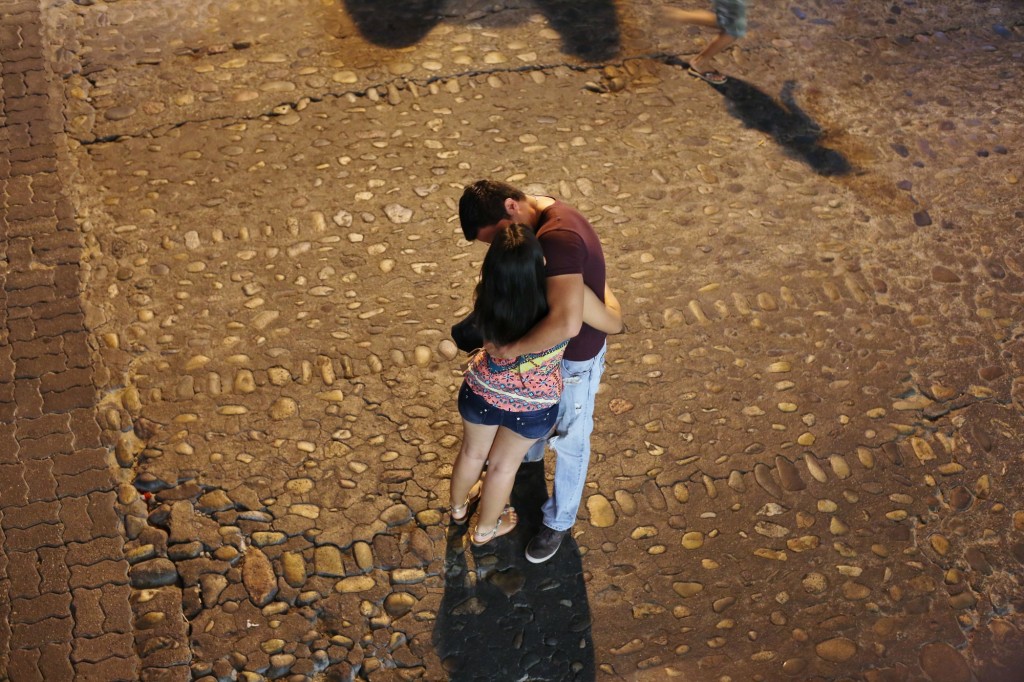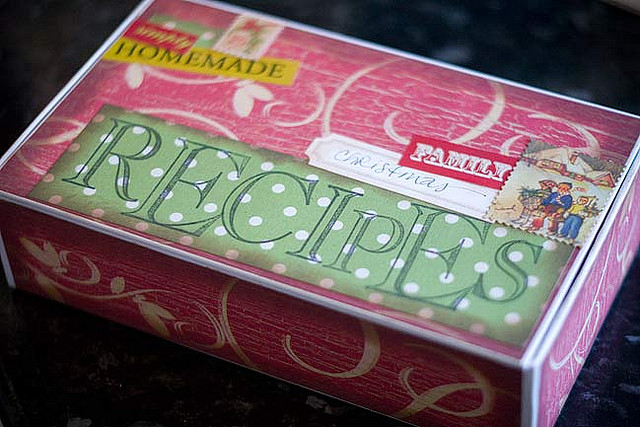
By Rae Pagliarulo
In the later half of my twenties, I went on upwards of fifty dates, mostly firsts with no encore, thanks to everyone’s favorite exercise in social humiliation: online dating. Of the limitless options, three platforms emerged as major resources. E-Harmony, perfect for serious, generally religious, mid-thirties marriage hunters; Match, for a subset of the same not willing to pay as much because the guy from the bar around the corner might still turn into something; and most often, OK Cupid, the web version of a hipster bar, packed to the gills with tattooed Peter Pans in tight pants just waiting to quote obscure Neutral Milk Hotel lyrics to a knitter/baker/anarchist/novelist with a body like a Victoria’s Secret model and a genuine interest in brewing her own kombucha.
I’ve paid for three-month subscriptions and then renewed. I’ve paid for one-month trials and then cancelled inside of a week. I’ve been honest and succinct; I’ve lied and been verbose. I’ve posted artsy, moody pictures, smiling pictures, and full-body pictures with my hips turned so my belly pooch didn’t show. I’ve left a trail of carefully chosen breadcrumbs behind me with no guarantee that they would lead to who I was.
I’ve met men in bars, in restaurants, in parks, at the movies, and coffee shops. I’ve kissed them full on the mouth before we even decided whether or not to split the check. I’ve faked explosive diarrhea and left before the waiter could take our second drink order. I’ve told darling little lies, like I’m just getting over someone, or You remind me of my ex–fiancé. I’ve told awful truths, like I feel as much chemistry with you as I do a Brill-o pad, or We have so little in common that I’m amazed we made it past the half-hour mark. I’ve been compared to someone’s mother, my hips a mirror to her own childbearing ones (and it was meant as a compliment).
Before almost every single one of my numerous first dates, I have made myself sick. I have doubled over with awful stomach cramps and gone to the bathroom six times in an hour. I’ve eaten, then thrown up, then eaten again so I could drink on the date without passing out plastered on the sidewalk. I’ve taken herbal sedatives, shots of whiskey, and tiny pills etched with Valium Vs. I’ve meditated and done yoga and chanted. Legs up the wall, mind clear. Nothing worked.
Sometimes just getting in front of another person made the anxiety disappear. I could ask questions and focus on the answers instead of the awful ticker tape in my head. “Where did you go to school?” Get out before he realizes you’re so messed up. “Wow, the youngest of six kids?” God, why do you even bother?
Thoughts like that, and worse, have been running through me since childhood. Within the codependent universe of an alcoholic household, I grew up believing that something as insignificant as a drink or two could turn my biggest fan into my worst enemy. In middle school, after years of navigating my father’s volatile but high-functioning alcoholism and its effect on my family, I was diagnosed with panic disorder, a form of anxiety that catapults mere thoughts into inescapable physicality. One troubling feeling can snowball into a full-blown attack in minutes, and once it has landed in the body, reason is a pitiful remedy. Meeting new people was tremendously challenging, and I was relentlessly worried about falling for a duplicitous charmer like Dad. The question was not if every man I met would devastate me—it was when. Better to beat them to the punch.
Sometimes, within minutes, I knew the person I was with wouldn’t be enough to distract me, and the pain and sickness would escalate to the point where the date would end and I’d smile blankly, knowing I hadn’t heard a single word he said. I’ve sent myself home claiming I suffered from migraines, stomach viruses, a sprained ankle, a sore throat, and once or twice, in moments of breathless, sweaty desperation, I’ve admitted to ailing from the only thing I ever actually had: panic attacks.
Sometimes I hurled myself into the next passing cab, only peering out the slammed door to wave apologetically. Sometimes they insisted on walking me home, and I would want to scream, Leave me here! Turn back now! They would lean in near my front step to kiss me, smelling of too much Aqua Velva and a stealthily chewed piece of gum, and if the date had been awful, I’d dodge their eager mouths and hug them, hips held far back, before bolting up the stairs. If it were merely unfortunate or strange, I’d think the kiss could save things, maybe just a little, and I’d make out with a stranger while the neighbors watched from suspiciously parted mini-blinds.
Those kisses never saved anything. They didn’t save the Republican cook who fried tater tots in the back of a topless go-go bar when he lit up a bowl of weed in his living room, never bothering to ask me if I minded. They didn’t save the overzealous and surprisingly effeminate dancer/photographer who placed his hands on my hips and complimented the fashionable details of my dress like a jealous girlfriend on a shopping trip, instead of sending lightning bolts down my thighs. They didn’t save the milquetoast retail worker who had no professional aspirations or genuine taste in music, beer, or movies, or the tattooed music teacher who wrote manifestos on cocktail napkins and was ceaselessly “just about done” his novel, or the sensitive Jewish middle school teacher who harbored badly hidden desires for unprotected sex and hand-jobs given in public.
They didn’t save Jon, a beer brewer who looked more like a pen salesman—mousy and unassuming in his photos, but I was taking my best friend’s advice to heart and giving anyone with half a personality a chance. “Shots on goal,” she’d say to me when I slumped home from another disappointing rendezvous. “Even if you shoot and miss every time, you’re upping your average.” My analytical brain leapt with deranged joy at the chance of standardizing and measuring a process that felt completely unpredictable and random. It became my new mantra, the thing I mumbled when I responded affirmatively to dates I had no interest in attending.
Jon and I met at a whiskey bar, lit low with mason jar candles and old-fashioned yellow-stained pendants. He was nice enough. He looked fine. He made me laugh once or twice, and when he kissed me on a busy street corner at the end of the night, I didn’t stop him. A homeless man told us to get a room, and in response, Jon placed his hand respectfully on my right ass cheek, as carefully as he would on a Bible while taking an oath.
I saw him twice more, simply because I didn’t have a good enough reason to stop. There was nothing wrong with Jon, but nothing quite right, either. Where I looked for sex appeal, magnetism, and a slanted take on the world, I found only politeness, consistency, and a rut right down the middle of the road, where he and his views so comfortably walked. On our third and final date, we had weak drinks, pleasant conversation, an uneventful walk up Walnut Street, and a boring stroll through Rittenhouse Square. We sat on a bench and the moment his arm reached up, over, and around my shoulder, it started.
The sweating, the heart palpitations, and terrible shortness of breath. Suddenly, his arm weighed a ton and I was being pushed under the bench, into the ground. I felt suffocated. “What do you want to do?” he asked courteously.
I want to run, I thought. I want to throw up right here on the ground and then run home. “I dunno,” I mumbled, trying to smile. I hid it for as long as I could, licking my lips, wiping the sweat from the back of my neck. I had all the composure of Tammy Faye Bakker in the last hour of a telethon. Before I knew it, I was yelling something about the stomach flu to him as I ran across 18th Street, ignoring the red light, waving my arm desperately for the five occupied cabs hurling down the lane towards me. I wheezed and shook the whole way home, and ignored his text messages: R U OK? When can I see U again? I knew the answer was never. He couldn’t see me—nobody could.
Those kisses, they didn’t save me, either. Each subscription lapsed, and I dejectedly read each vaguely threatening auto-response email from behind my brick wall. If you don’t act now, we will take down your photo and profile. You will not be able to see your match. He’s out there. We’ve got him right here, in fact. He can’t wait to meet you. Just update your credit card information. That’s how they get us, the hopeful and desperate. This site is the one place we haven’t looked. His profile is the one we haven’t yet clicked on. Signing up for these websites feels like gambling through a losing streak. If you pull the lever enough times, you’re bound to get a cherry or two. The cocktails, the small-talk, the hundred different ways I came up with to describe my favorite foods, my aspirations in life, the places I’d vacation if I had a million dollars—I wonder if it all brought me closer to the final goal, The Guy, or if it just kept me distracted during the inevitable wait.
That’s the thing about fate. Those of us who keep a white-knuckled chokehold on reality want to believe that things happen because we work for them. The idea that it all occurs the way it’s meant to, no matter what we do, is dizzying and takes the ground from under our feet. So whether it’s true or not, whether it’s a lie I tell myself or the God’s honest truth, I’m grateful to E-Harmony, to OK Cupid, to whiskey in dark bars and coffee on Sundays, to panic attacks and stomach cramps, to lies told to strangers and truths admitted over the phone after midnight. I’m thankful I didn’t give up even though I wanted to a million times.
It feels cheap to admit that after all that, it actually worked once—that I met someone on OK Cupid who, for some reason, never made me want to throw up or run away. He was the last person I messaged before I decided to deactivate my profile for the last time, after a particularly rough streak. Feeling an uncharacteristic surge of hope, I took a final shot towards the goal, writing a curt but cute message to him around dinnertime, and issued an unspoken deadline of midnight for a response before I clicked the “Delete My Account” button with an outstretched middle finger. Twenty minutes later, we had made plans to meet. Why did he lock into place so effortlessly when so many others felt around in the dark for a connection? It could have been instinct, his deep-set blue eyes, the cosmos, the wrinkle along his left ear, or maybe my tired, agitated soul felt the same fidgety weariness in him. But I think I’m okay with not knowing for sure. It’s not my job to understand why some things crash and burn while others flourish. It’s my job to tell the story when it all shakes out.
•••
RAE PAGLIARULO is an MFA Creative Writing Candidate at Rosemont College. Her work has been featured in West Chester University’s Daedalus Magazine of the Arts and Philadelphia Stories, and is anthologized in The Best of Philadelphia Stories: 10th Anniversary Edition. She is also the 2014 recipient of the Sandy Crimmins National Poetry Prize. She works and lives (and dates) in Philadelphia.

 Follow
Follow








